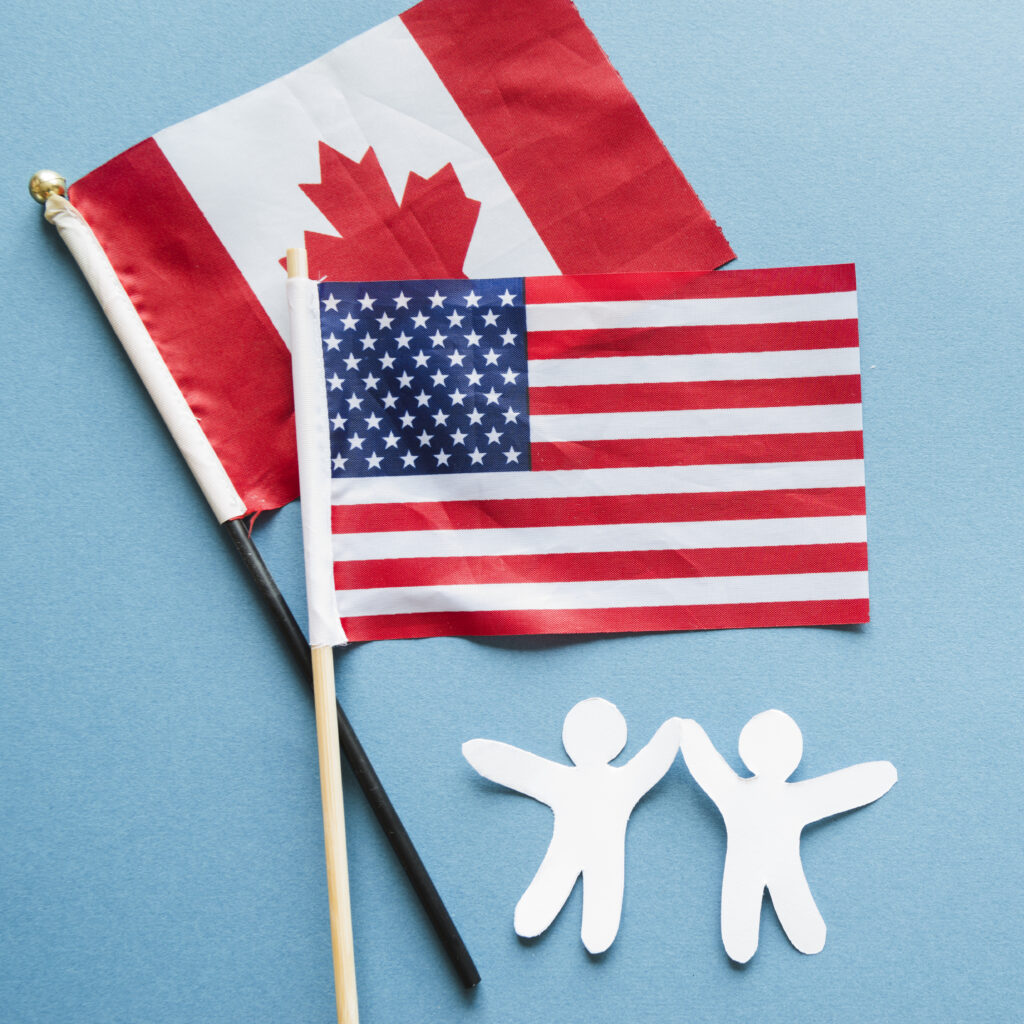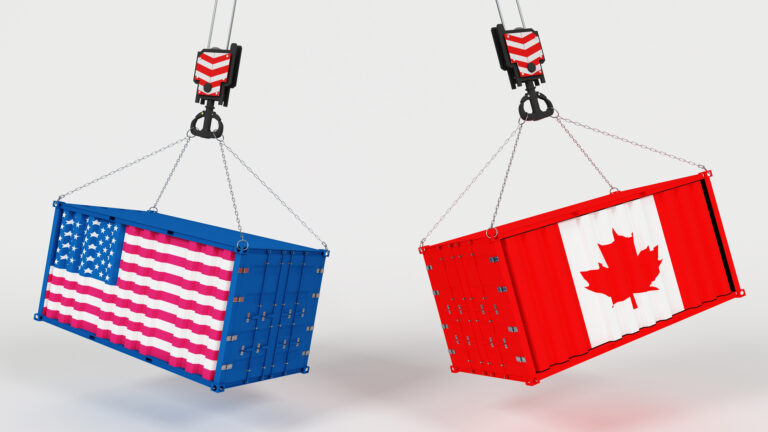Well…
The relationship between Canada and the United States has historically been marked by close commercial and political cooperation. However, recent U.S. protectionist measures and geopolitical tensions are challenging this relationship, causing significant economic and social impacts. The possibility of high tariffs on Canadian products and even controversial suggestions about a potential incorporation of Canada as part of the U.S. have become hot topics in political and media debates.
Canada’s Economic Dependence and U.S. Tariffs
Since the signing of the Canada-U.S. Free Trade Agreement in 1988, which later evolved into the United States-Mexico-Canada Agreement (USMCA), Canada has established itself as one of the U.S.’s main trading partners. Approximately 80% of Canadian exports are destined for the United States (Time). However, this strong dependence has made Canada vulnerable to U.S. protectionist measures.
Tariffs and Retaliation
In 2024, former President Donald Trump suggested imposing 25% tariffs on Canadian products, which could affect sectors such as aluminum, steel, and automobiles. Canadian Prime Minister Justin Trudeau responded immediately: “We will not accept any measure that threatens our economy and our sovereignty” (El País).
The Canadian government has also threatened to impose retaliatory tariffs should the U.S. implement these measures. Analysts point out that this could lead to a spiral of sanctions and severe impacts on both sides of the border.
The Rise of Canadian Nationalism
Trump’s protectionist rhetoric and growing economic pressure have fueled a strong sense of patriotism in Canada. In response, campaigns such as “Canada is not for sale” have emerged, selling caps and t-shirts with this phrase printed on them.
The population has widely expressed its opposition to any approach that threatens Canadian sovereignty. As Canadian politician Jagmeet Singh stated: “We are not an extension of the United States. Our history, culture, and values are distinct, and we will not allow ourselves to be economically or politically absorbed.”
Experts Warn of the Risks
According to economist Jennifer McKee of the University of Toronto, “Canada’s biggest challenge is its difficulty in diversifying trading partners.” McKee highlights that “despite efforts to strengthen ties with the European Union and Asia, infrastructure and logistical costs make this transition difficult.”
Another expert, political analyst Michael Robertson, warns that “any U.S. protectionist measure would affect millions of Canadians who directly depend on bilateral trade. Economic pressure could lead to a recession and an increase in unemployment.”
How Are People Reacting?
On social media, many Canadians are expressing concerns about the country’s economic future. User @JohnToronto_89 posted on X (formerly Twitter): “If Trump gets what he wants, our country will be in serious trouble. We need to strengthen internal trade now!”
Meanwhile, user @MarieMontrealQC emphasized: “I have never seen so many Canadians united for a purpose. We will not be controlled by the U.S.!”

The Future of Canada-U.S. Relations
The Canadian government is now under pressure to diversify its trading partners and strengthen its domestic economy. Discussions are underway about closer trade agreements with Asia and Europe, as well as incentives for national industries to reduce dependence on the U.S. market.
The coming months will be crucial in defining the course of the relationship between the two countries. Meanwhile, Canadian nationalism continues to grow, and bilateral tensions remain one of the most discussed topics today.
Links to Explore
- How Canada Became Dependent on the U.S. Economy
- Canadians React to U.S. Economic Threats
- Analysis of U.S.-Canada Economic Policy
This article will continue to be updated as new information emerges about the impact of this crisis and the political and economic developments between the two countries.

